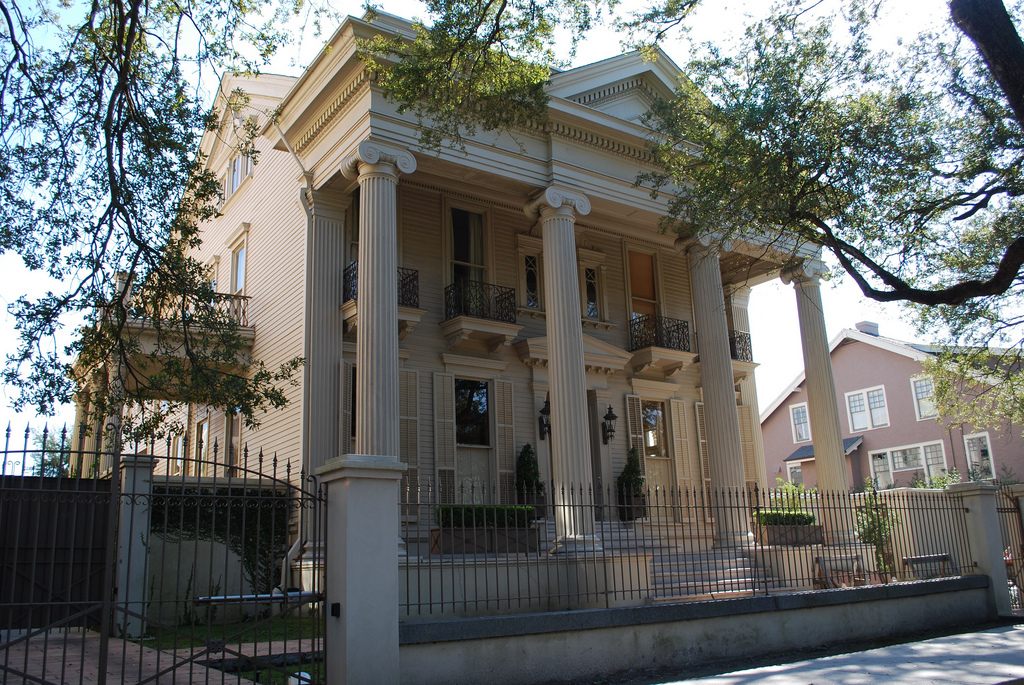The Mysterious Blogger Chronicling Every “Real World” House
 Belfort Mansion, New Orleans, from the ninth season of MTV’s The Real World. (Photo: Ann-Dabney/Flickr)
Belfort Mansion, New Orleans, from the ninth season of MTV’s The Real World. (Photo: Ann-Dabney/Flickr)
Exactly 30 times over the past 23 years, a collection of attractive people have been filmed while they entered a large, well-appointed home in which they are to live for a few months. The 18-to-26-year-olds whoop and holler, race each other around to select bedrooms, crash into cameramen and guys in cargo shorts holding boom microphones above their heads. A few months later, the house, which may hold historic significance or at the least simply be enormous and expensive, is returned to the owner from whence it came, soiled by the filmed escapades of the short-term tenants.
And then it shows up on the realworldhouses.com site, which boasts a barebones title: “The Real Truth Behind MTV’s The Real World Houses.”
 (Photo: Courtesy www.realworldhouses.com)
(Photo: Courtesy www.realworldhouses.com)
For about a decade, an unnamed proprietor (who did not respond to requests for comment for this article) has been quietly researching, visiting, and keeping a detailed database of all mentions of each of the thirty Real World houses. The houses are scattered all over the world—sure, there are houses in most major American cities (three in New York City, two each in San Diego, Los Angeles, San Francisco, Las Vegas, New Orleans, and Chicago, one in most other major cities) but there’s also a house in the Paris suburbs, one in Sydney, Australia, and one that consists of a private island in the Caribbean, among others.
The houses tend to be location-appropriate, incorporating some kind of local flavor, at least on the outside. The Las Vegas houses are gaudy casino penthouses. The first New Orleans season is a legendary 19th-century mansion. The very first season, in New York City, filmed in a loft in SoHo. Other houses are converted—a firehouse in Boston, an industrial pier in Brooklyn, a broadcasting studio in Hollywood.
 Broadway, New York (Photo: Eden, Janine and Jim/Flickr)
Broadway, New York (Photo: Eden, Janine and Jim/Flickr)
Initially, the houses were outfitted almost wholly by Ikea. But more recently Jonathan Murray, who heads Bunim-Murray Productions, the company behind The Real World (and Keeping Up With The Kardashians, Project Runway, and Bad Girls Club, and many others), told Glamour that “now we have a production designer who goes out to the city we’re shooting in and finds out who the local furniture makers and artists are.” Regardless, every house still basically looks like it’s been outfitted almost wholly by Ikea, with a few items of local flair. Hawaii’s house has a volcano in the pool. The Washington, D.C. house has Pop Art-ish pictures of a president in each bedroom. Almost every house has a fish tank.
Like any true fan, the person behind RealWorldHouses.com stretches the limits of reason in his or her quest for the definitive accounting of the show’s houses. Addresses, pictures from before and after the filming of the show, current state and current owners, whether you can rent it for a reality-themed weekend, interviews with people who have rented it for a reality-themed weekend, scanned PDFs of the auctions of all the decor that must be sold after filming has completed, and a rough history of each building. Some of them are fascinating! The first Chicago season, filmed in late 2001 (the cast members aren’t allowed to watch TV, but the producers allowed them to watch coverage of 9/11), is a good example. According to the site:
The nondescript building was a dressmaker’s sweatshop in the early 20th century, a storage facility in the ’70s, then fell into disrepair in the ’80s, haunted by addicts and dealers. The space was occupied from 1989 to 1998 by Urbus Orbis Café, a hipster hangout, then an antique shop.
 (Photo: Courtesy www.realworldhouses.com)
(Photo: Courtesy www.realworldhouses.com)
The site lists the specific local designer tasked with decorating the house—in this case, Suhail Designs—and traces its progress from sweatshop to storage to slum to cafe to antique shop to reality show set to, these days, a Cheetah Gym. It includes exterior shots from either the site’s proprietor or a tipster, as do most of the locations. This is a bonkers amount of detail; this sort of information isn’t anywhere else on the internet, not available from Bunim-Murray or MTV or even deep in the various Real World messageboards scattered around the internet.
The Real World occupies an interesting place in the culture at large; it is inarguably the first of the modern reality shows, and as it has not been cancelled, is also the longest-running of them all. Only a few seasons—the first New York season; the third season, San Francisco, which featured anarchic gross human Puck and HIV-positive activist Pedro; and the 12 season, Las Vegas, which began the show’s pivot into a series where three-way hot-tub hookups are both expected and sort of tame—have achieved huge viewership numbers. Instead it remains fairly successful and not very expensive to film, which is why it’s still on the air.
But its old seasons are not generally available to purchase. Most seasons of the show aired and then were never seen again, leaving just a memory of a particularly egregious roommate behavior or hookup or racially motivated fight. The houses, though, still stand. You can go look at them. There’s probably one near you.



Follow us on Twitter to get the latest on the world's hidden wonders.
Like us on Facebook to get the latest on the world's hidden wonders.
Follow us on Twitter Like us on Facebook